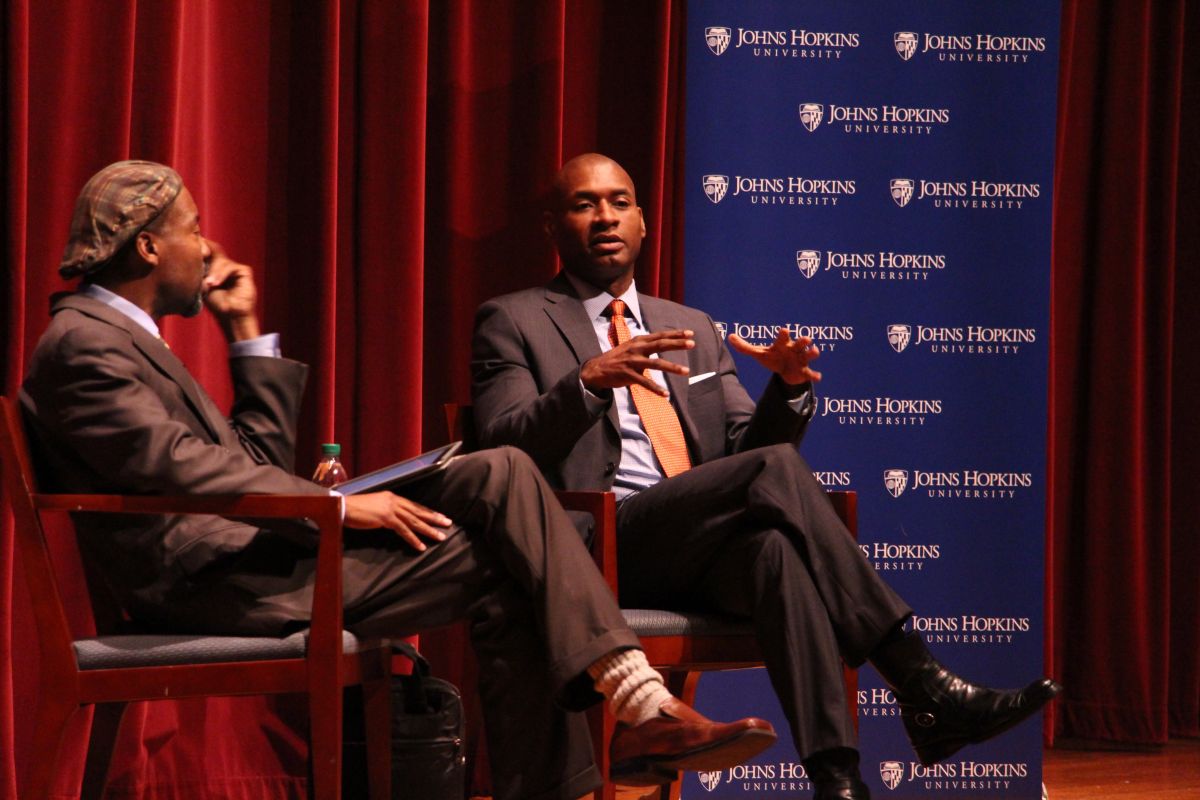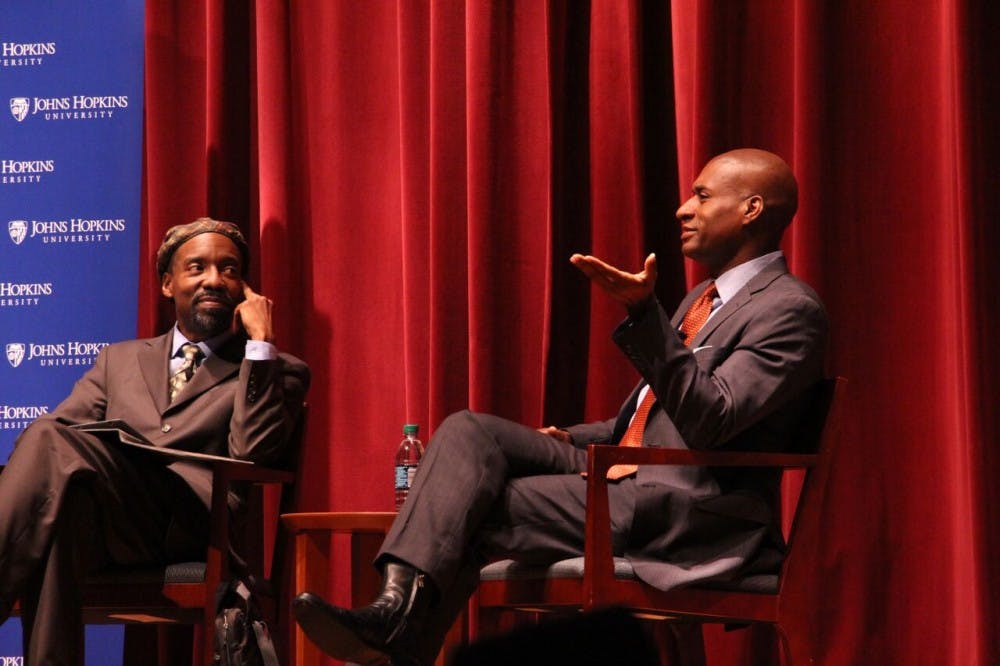By SHERRY SIMKOVIC For The News-Letter
JHU Forums on Race in America hosted Charles M. Blow, a New York Times op-ed columnist, on Wednesday at Shriver Hall. He focused on recent instances of police brutality and systemic racism.
Blow is also a CNN contributor and author. He released his memoir, Fire Shut Up in My Bones in Sept. 2014.
The event was sponsored by the Diversity Leadership Council, the Office of Institutional Equity, the Center for Africana Studies, the Black Student Union, the Black Faculty and Staff Association and the Office of Student Affairs. Lester Spence, an associate professor of political science and Africana Studies at Hopkins, moderated the event.
He explained the purpose of the Forums, which began last Spring, following the death of Freddie Gray and subsequent protesting.
“[The purpose was] to begin to solve the problems of what some call the Baltimore Uprising. We hope to spark dialogue and change at Hopkins and in the wider Baltimore community,” Spence said. “We are in a crisis. We need ideas. Ideas matter to generate new ways of understanding the world and to generate a new status quo.”
Spence then introduced Provost Robert C. Lieberman, who shared his thoughts on the Forums.

“The Forums on Race is a direct outgrowth of ongoing and sustained conversations between students, staff, faculty and leadership about race, inequality, structural racism and the host of problems plaguing our society,” Lieberman said. Lieberman proceeded to introduce Blow. According to Lieberman, Blow grew up in a small town near Shreveport, La., “where a shallow ditch and a deep understanding” segregated the races and where Blow “endured more than anyone should and more than anyone could.”
Blow’s love of journalism was instilled in him by his mother who read the local newspaper each night, Lieberman said.
Blow began his career in journalism by telling stories in graphics. He began to work for The New York Times after attending a job fair in Atlanta. According to Lieberman he was initially turned down since there were no job openings in graphics, the area in which Blow was interested. However, The Times created a new position for him as a graphics intern. He eventually became the graphics editor and a visual opinion editorial columnist for The Times.
After Blow was introduced, Spence and Blow discussed police brutality. Spence began by asking Blow about a recent incident involving a South Carolina police officer who roughly handled a black high school student.
“What is the difference, in your opinion, between incidents like this one that occur today and those that occurred in the de facto South?” Spence asked.
“It’s hard to juxtapose the two without taking into account geography,” Blow said. “There are two different geographical contexts at play: the rural south and the urban north. There are two different black experiences due mostly to the Great Migration and those who were left behind. If you think about racial progress having a life cycle, racial harmony or disharmony is younger in urban centers.”
Blow continued to say that the use of state forces on black and brown bodies has a long legacy in the South. According to Blow, during and after the Civil Rights Movement of the 1960s, state and police forces increased in presence outside of the South.
“Stop and frisk happened in Manhattan, not Mobile, Ala.,” Blow said. “The Great Migration failed; It did not live up to its promise. Black people left the devil they knew for the devil they didn’t and realized the devil was the devil.”
Blow also commented on subtle forms of racism.
“To a lot of people, diversity is only beautiful in the abstract,” he said.
Blow said that in the 2012 presidential election, U.S. President Barack Obama received the highest percentage of the white vote in the state with the smallest percentage of black voters and the lowest percentage of the white vote in the state with the biggest percentage of black voters.
“Power and proximity alters what we are willing to accept. For white America it’s easy to tell the South to fix its race problem when you don’t have to live next to black people,” Blow said.
Blow discussed surpassing racial tensions.
“If I can get people to see the humanity in other people, I believe we can connect to one another in a larger way,” Blow said. “It’s not about black, it’s about loss. We should all be able to connect to that. There are no two sides to a dead body. Only a life that could still be and a life that is no longer. You should be punished for disobeying an officer but you should not be punished by losing a life.”





